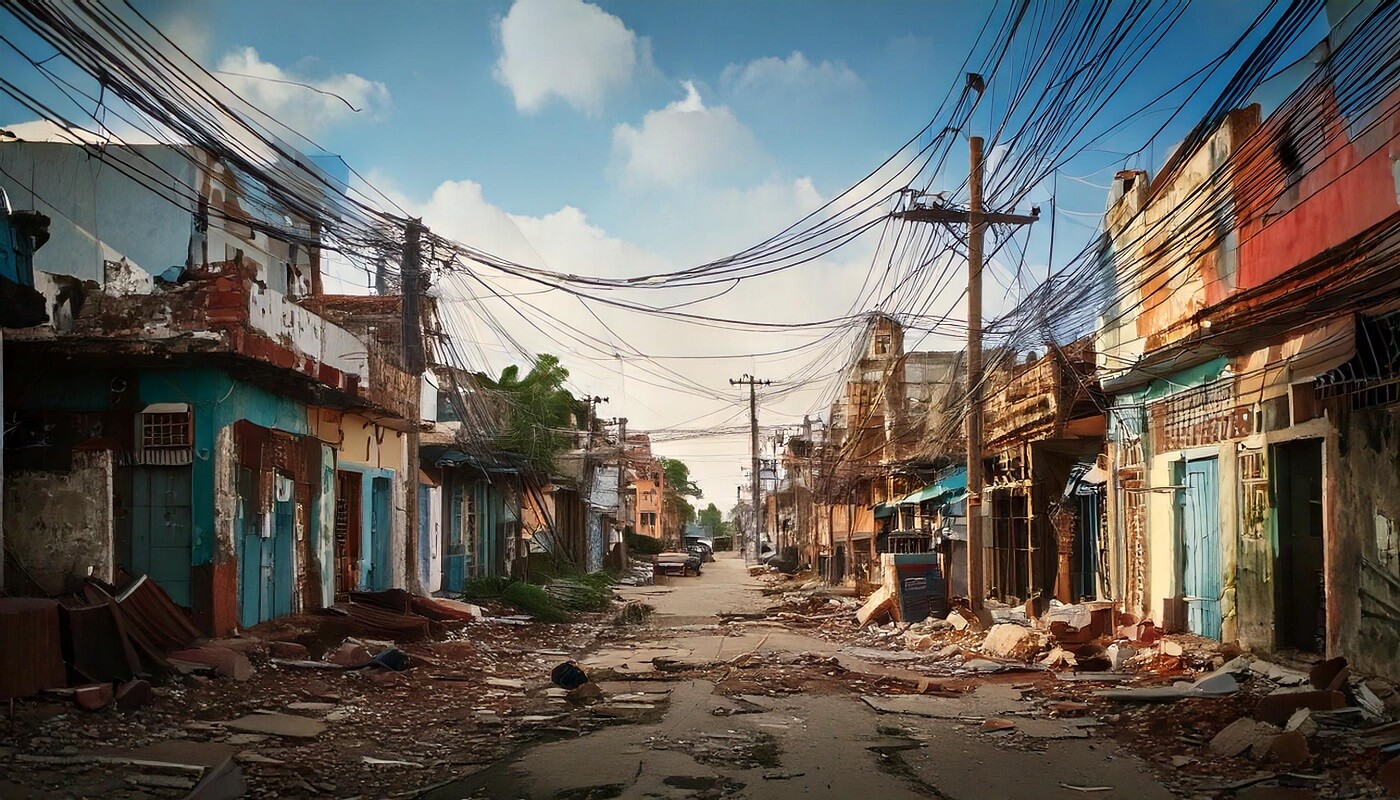Vintage vibes blackout surprise!
Content provided by our International Power Grid Correspondent
HAVANA – CUBA In a revelation that has left energy experts across the globe dumbfounded, reports from Cuba confirm that the island nation’s electrical infrastructure—originally constructed in the 1950s and seemingly maintained through a mix of duct tape, wishful thinking, and the occasional voodoo spell—is, in fact, neither robust nor reliable.
“I mean, who could have predicted this?” said Dr. Gerald Matthews, a stunned electrical engineer at MIT, as he reviewed images of a crumbling power station that appeared to be held together with rusty wires, discarded Soviet manuals, and perhaps the collective prayers of a thousand Havana grandmothers. “You just don’t expect a power grid that’s been around since the Eisenhower administration to have issues.”
The revelation comes after a series of blackouts left much of Cuba in the dark for days, prompting international disbelief that a system developed before color television became mainstream might not be up to modern standards. “It’s shocking,” remarked U.N. Secretary-General António Guterres, pausing to contemplate the sheer mystery of it all. “One would think a network built during a time when the hula hoop was cutting-edge technology would be thriving in today’s digital age.”
The discovery of Cuba’s electrical inadequacies has sparked widespread confusion among analysts, some of whom are struggling to comprehend how a country that has famously preserved its 1950s cars with scrap metal and sheer optimism would allow its electrical grid to age in a similarly unconventional manner. “The idea that a system developed with pre-transistor technology would need some… I don’t know… ‘upgrades’ after 70 years? No one saw that coming,” said Tom Armitage, a baffled CNN energy correspondent, who also expressed amazement that power outages could be caused by something other than solar flares or alien invasions.
Even Cuban citizens are reportedly as mystified as the rest of the world. “When the lights went out, I thought, ‘Surely, this can’t be happening. Our glorious 1958 electric grid? Impossible,’” said María González, a resident of Havana, who confessed that she, like most Cubans, had assumed the ancient system was imbued with a kind of mystical resilience. “My grandmother said it was powered by Fidel’s willpower, and we all just went with that.”
Despite the apparent issues with their infrastructure, Cuban officials maintain an upbeat tone. “We are not concerned,” said Miguel Martínez, head of Cuba’s Ministry of Outdated but Still Functional Things, as he inspected a control panel that resembled a prop from a Cold War-era spy movie. “Our system has weathered hurricanes, the embargo, and countless pigeons roosting in key circuits. It’s a little tired, but hey, so are we.”
International aid groups have offered assistance to modernize Cuba’s power grid, but some Cuban officials have hesitated, citing concerns that such an upgrade might somehow diminish the “authentic vintage charm” of the entire electrical experience. “Tourists love the classic cars, so why wouldn’t they love the classic blackouts?” asked Julio Ramírez, Cuba’s Deputy Minister of Retro Aesthetic, while repositioning a lamp that hadn’t worked since 1992.
Meanwhile, American tourists, many of whom came to Cuba seeking “an authentic 1950s experience,” have been particularly delighted by the blackouts, hailing them as “the most immersive historical reenactment ever.”
“I mean, we were in the middle of dinner when everything went dark, and it was like being in a Hemingway novel,” said Susan Beckett, a traveler from New York. “I just felt so connected to the era. Plus, it gave me time to reflect on how fortunate I am to live in a country where power outages are, you know, mostly caused by hurricanes and not silly things like communistic ideology.
Despite the humor, energy experts are calling for immediate action, suggesting that Cuba’s power grid—while nostalgic—may need more than a trip to a flea market to find spare parts. “We recommend a thorough overhaul,” said Dr. Matthews, “though it’s entirely possible that Cuba’s strategy of ignoring the problem for another 20 years will continue to defy the laws of physics and logic. Stranger things have happened.”
In the meantime, Cubans are expected to continue coping with the situation in classic Cuban fashion: with ingenuity, a touch of stubbornness, and, of course, more rum than should be humanly possible.
Vintage vibes blackout surprise! Vintage vibes blackout surprise!




